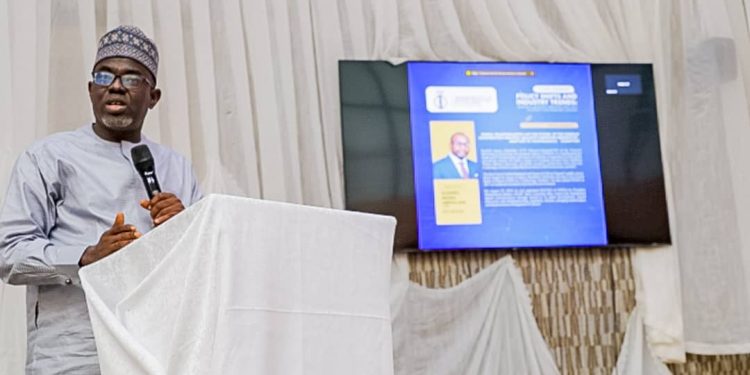The Director General of the National Information Technology Development Agency (NITDA), Kashifu Inuwa, has called on Nigeria’s construction industry to accelerate the adoption of digital technologies that can revolutionise project delivery, boost productivity, and unlock new opportunities for growth.
Speaking at a two-day workshop organised by the Nigerian Institute of Quantity Surveyors (NIQS), FCT Chapter, themed *“Policy Shifts and Industry Trends,”* Inuwa said embracing emerging technologies is no longer optional but a strategic necessity for the future of the construction sector.
Represented by Dr. Yahaya Onimisi, Acting Director of Project Management at NITDA, Inuwa explained that tools such as Building Information Modelling (BIM), Artificial Intelligence (AI), Blockchain, Data Analytics, and Cloud Collaboration are set to redefine how construction projects are planned, executed, and managed. These technologies, he noted, offer pathways to improved accuracy, smarter project management, enhanced transparency, and increased productivity across the construction value chain.
“As the urgent need for modernisation becomes more apparent, the future of construction lies in digital transformation. By embracing innovation, Nigeria’s quantity surveyors can drive smarter, faster, and more transparent infrastructure development,” he said.
The NITDA boss identified key industry challenges — including project delays, cost overruns, inefficiencies, and cultural resistance to change — and described digital transformation as both a disruption and a powerful opportunity. He added that adopting digital tools would allow quantity surveyors to evolve from routine cost measurement roles into more strategic, data-driven functions that support decision-making and innovation.
“Digital transformation is not merely about adopting new technology but about fundamentally changing business processes, culture, and skills to leverage the opportunities presented by the digital age,” he stated.
Inuwa also called for stronger collaboration between NITDA and NIQS to fast-track digital adoption in the sector. He highlighted potential areas of partnership such as capacity building, policy alignment, innovation labs, and the development of a sector-specific digital transformation roadmap aligned with NITDA’s Strategic Roadmap and Action Plan (SRAP) 2.0.
Drawing from the agency’s partnerships with professional bodies like the Nigerian Medical Association (NMA), Nigerian Union of Journalists (NUJ), and Nigerian Union of Teachers (NUT), he stressed that similar collaboration with the construction sector could accelerate innovation and unlock new levels of efficiency and transparency.
He urged industry players to adopt a mindset of continuous learning, make strategic investments in technology, and strengthen partnerships with stakeholders. Doing so, he said, would help the industry not just adapt to technological change but thrive in a rapidly evolving landscape.
For small businesses in the construction value chain from local contractors and surveyors to materials suppliers and service providers, digital transformation could mean greater competitiveness, faster project turnaround, and access to new markets. With the right tools and training, MSMEs can participate more actively in large-scale infrastructure projects and contribute to building a more innovative, efficient construction ecosystem.










